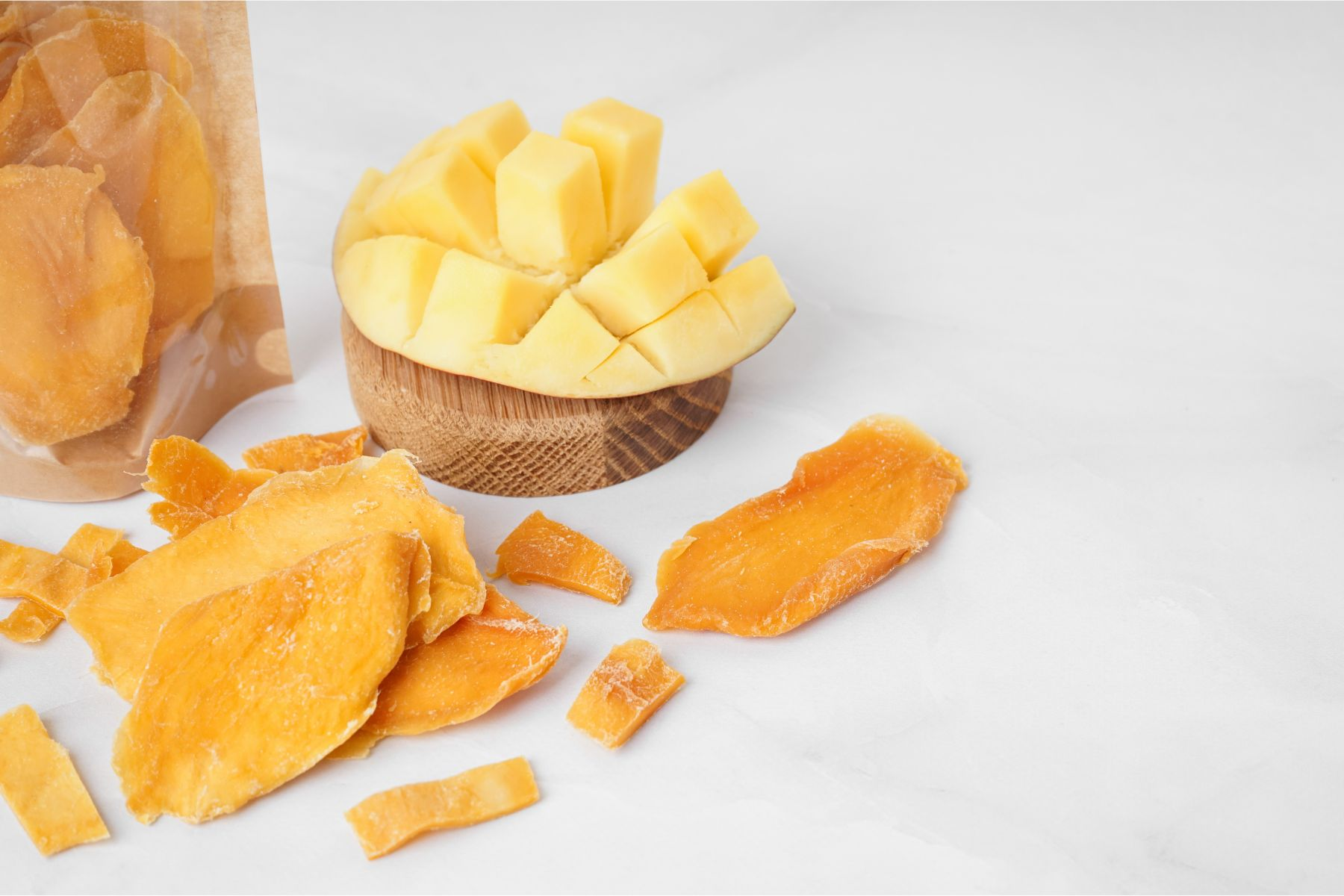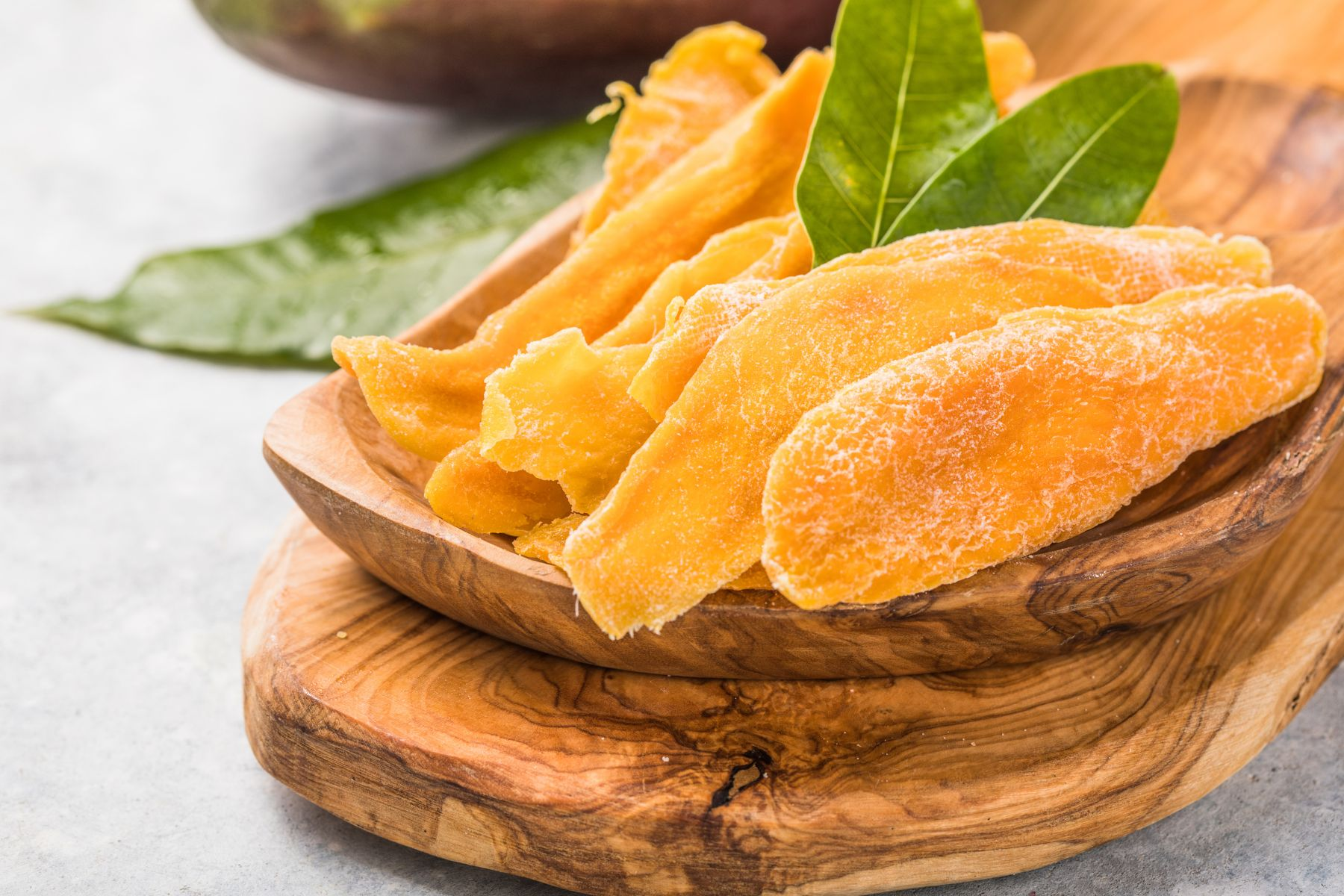Introduction
Dried mango has become a popular snack in recent years, sparking widespread curiosity: "Is dried mango good for you?" Have you ever found yourself pondering the healthiness of this increasingly favorite snack? This blog post is dedicated to exploring just that. We'll dive deep into the details, taking a close look at the unexpected and amazing benefits that come with enjoying this delicious treat.
Join us as we uncover the surprising health advantages of dried mango, revealing why this delightful snack is not just a treat for your taste buds but also a beneficial choice for your health.
Understanding Dried Mango
What is Dried Mango?
Dried mango is a form of dried fruit, where water is removed from fresh mangoes, either through sun-drying or dehydrating. This process intensifies the flavor and extends the shelf life, making dried mangoes a convenient snack.
Dried Mango Vs. Fresh Mango: Nutrition Showdown
When comparing dried mango to its fresh counterpart, there are key differences. While dried mango retains most nutrients of fresh mangoes, the drying process can affect the vitamin content. For instance, vitamin C, known for its immune-boosting properties, is more prevalent in fresh mango.
The Nutritional Profile of Dried Mango

A Closer Look at Dried Mangoes Nutrition
Dried mangoes are a rich source of dietary fiber, vitamins, and minerals. They contain a high concentration of vitamin A, essential for eye health, and beta carotene, known for its antioxidant properties. However, it's important to consider the sugar content in dried fruits, as it can be higher than in fresh fruit.
Sugar Content in Dried Mango: A Healthy Balance?
While dried mango contains natural sugars, some brands may add sugar for extra sweetness. This added sugar can turn a healthy snack into a sugary treat. Therefore, it's crucial to check the labels for added sugars and opt for versions with no extra sweeteners.
Health Benefits of Dried Mangoes

Top Health Benefits of Dried Mangoes
Eating dried mango offers numerous health benefits. It's a highly nutritious choice, providing a good dose of dietary fiber, which aids in digestion and gut health. The rich vitamin and mineral content, including vitamins A and C, supports overall health.
Specialty Benefits: Vision, Bone Density, and More
Dried mangoes are beneficial for improving vision due to their high beta carotene content. They also contribute to bone health, thanks to their calcium and vitamin K content. Additionally, their antioxidant properties can help in skin health and may alleviate symptoms of chronic diseases.
Potential Risks and Considerations
Understanding the Risks: Are Dried Mangoes Good for You?
While dried mangoes offer health benefits, overconsumption can lead to issues due to their high sugar and calorie content. Moderation is key. A serving size should be considered to avoid excessive sugar intake, which can lead to high blood sugar levels.
Allergies and Sugar Content: Navigating the Concerns
Allergic reactions to mango, particularly mango skin, can be a concern for some individuals. Additionally, the high sugar content, even natural sugars, can be problematic for those managing blood sugar levels. Choosing dried mangoes with no added sugar and consuming them in moderation can mitigate these risks.
Incorporating Dried Mango in Your Diet

Creative Ways to Use Dried Mango
Dried mango can be a versatile addition to various dishes. It can be used in mango chutney, added to salads, or even incorporated into baked goods. Its sweet flavor pairs well with savory dishes and can be a great way to enhance flavor.
DIY Dried Mango: A Healthy Homemade Option
Making dried mango at home is a simple process that ensures you consume it without added sugar. This method allows you to enjoy the benefits of dried mango with less sugar compared to store-bought varieties.
FAQs and Tips
Storing and Preserving Dried Mango
Proper storage of dried mango is crucial for maintaining its quality and extending its shelf life. Here are some tips to ensure your dried mangoes stay fresh and delicious:
-
Use Airtight Containers: Store dried mango in airtight containers. Exposure to air can lead to moisture loss or absorption, affecting the texture and taste. Airtight containers prevent this and also keep out pests.
-
Cool and Dry Location: Keep the container in a cool, dry place, away from direct sunlight. Extreme temperatures and light can degrade the quality of the dried mangoes.
-
Refrigeration for Long-Term Storage: If you plan to store dried mangoes for an extended period, consider refrigerating them. This slows down degradation and helps preserve their flavor and nutritional value.
-
Check for Moisture: Occasionally check for any moisture inside the container. Moisture can promote mold growth and spoil the dried fruit.
-
Avoid Cross-Contamination: Keep dried mangoes separate from strong-smelling foods to prevent flavor absorption.
By following these storage tips, you can enjoy your dried mangoes for a longer time while retaining their health benefits and taste.
Common Queries Answered
Is dried mango good for kids?
Yes, in moderation, dried mango can be a nutritious and tasty snack for children. It's a good source of vitamins, especially vitamin A, which is important for growth and development. However, be mindful of the portion size and sugar content, especially if there's added sugar. Natural, unsweetened dried mango is a better choice for kids.
How much should you eat?
Moderation is key when it comes to consuming dried mangoes. A recommended serving size is about 1/4 to 1/3 cup, which approximately equals a medium-sized fresh mango. This serving size helps you enjoy the taste and health benefits without overindulging in sugar. Remember, even natural sugars should be consumed in controlled amounts to maintain a balanced diet.
Can dried mango affect blood sugar levels?
Dried mango, like most dried fruits, has a concentrated source of natural sugars. Therefore, it can affect blood sugar levels, especially in people with diabetes or those watching their sugar intake. It's advisable to consume it in moderation and balance it with low-sugar foods.
Is dried mango as nutritious as fresh mango?
Dried mango retains most of the nutrients of fresh mango, including dietary fiber and vitamins. However, some nutrients, like vitamin C, are reduced during the drying process. It's a nutritious option, especially when fresh mangoes are not available.
Can you rehydrate dried mango?
Yes, dried mango can be rehydrated by soaking it in water, juice, or even warm tea. This can be done for recipes where a softer texture is desired, like in baking or cooking. Rehydrating also mellows the concentrated sweetness of the dried fruit.
Conclusion
In conclusion, dried mango can be a healthy addition to your diet when consumed in moderation. It's a convenient snack, rich in beneficial nutrients, and offers several health benefits. However, it's important to be mindful of the sugar content and choose versions with no added sugars to fully enjoy the health benefits dried mango offers.

